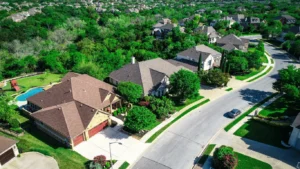Community engagement, which involves the participation of local residents and stakeholders in planning and development projects, is reshaping how cities and neighborhoods are designed and built.
Community engagement in urban planning and real estate development serves several key purposes. Firstly, it ensures that the voices of those who are most affected by new developments are heard and considered. This inclusion can lead to more equitable and sustainable outcomes, as projects are more likely to address the actual needs and concerns of the community.
Moreover, engaging with the community can lead to increased transparency in the development process. When residents are informed and involved in decision-making, there is a greater sense of ownership and trust in the outcomes. This transparency can reduce conflicts and opposition to projects, facilitating smoother implementation.
The role of community engagement is also crucial in preserving the unique character and heritage of neighborhoods. Residents often have a deep understanding of their community’s history and culture, which can be invaluable in guiding development in a way that respects and integrates these elements.
However, the process is not without challenges. Effective community engagement requires time, resources, and a genuine commitment from developers and planners. There can be barriers to participation, such as language, accessibility, or time constraints, which need to be addressed to ensure a diverse range of voices is heard.
In terms of impact, projects that have a strong community engagement component often result in more sustainable and livable environments. These projects tend to incorporate features that are important to residents, such as green spaces, community facilities, and pedestrian-friendly designs.
Furthermore, community engagement can lead to innovative solutions to urban challenges. Residents and local stakeholders often bring unique insights and ideas to the table, which can result in more creative and effective designs.
Community engagement is playing an increasingly important role in urban planning and real estate development in Canada. By involving residents and stakeholders in the planning process, developments can be more equitable, sustainable, and in tune with the needs and character of local communities. While there are challenges to effective engagement, the potential benefits make it a crucial aspect of modern urban development.





